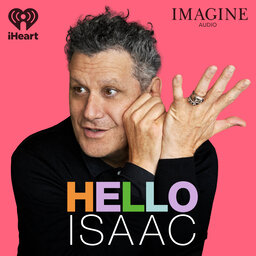TV Presenter & Style Expert, Carson Kressley
On the premiere episode of Hello Isaac, Isaac Mizrahi chats with Carson Kressley about RuPaul’s Drag Race, being bullied as a child, personal style and much more.
Follow Hello Isaac on @helloisaacpodcast on Instagram and TikTok, and catch up with Carson Kressley on Instagram @carsonkressley.
 Hello Isaac with Isaac Mizrahi
Hello Isaac with Isaac Mizrahi


